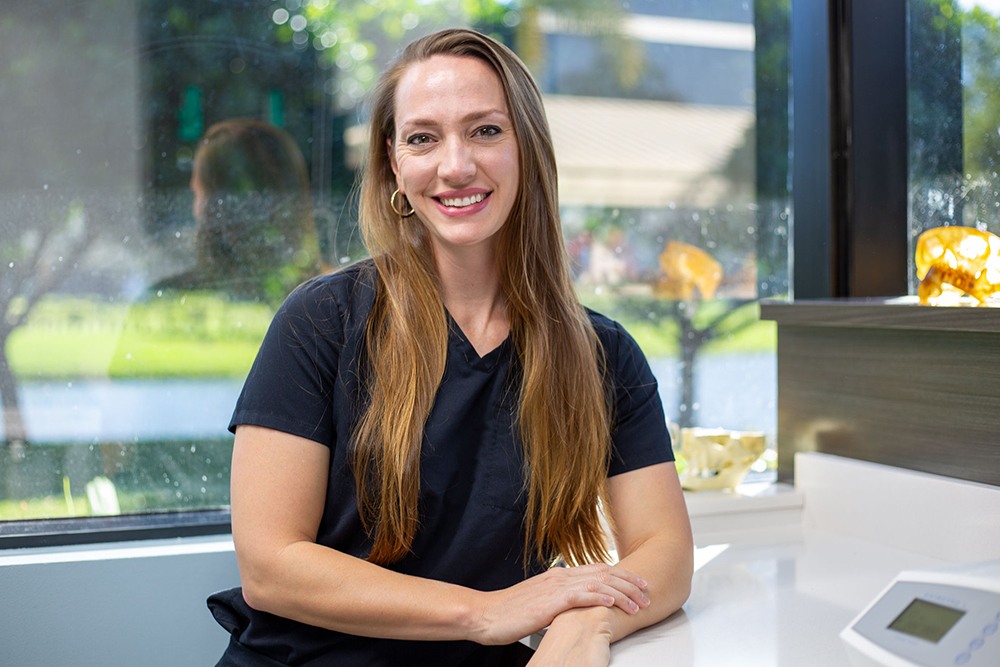How Busy PAs Can Navigate Dietary Pitfalls

Prioritize Food, Movement, Sleep for Optimal Health
Colleen Sloan, PA-C, RDN, knows the challenges that her fellow PAs face in staying healthy while working in health care. PAs have demanding schedules, need to constantly stay focused and energized and feel the pressure to eat well.
“It’s important to stress that when it comes to diet, consistency matters more than perfection,” Sloan said. “We aim for steady progress, not flawless adherence.”
In addition to her role as a PA at Pediatric Associates in South Florida, Sloan hosts the Exam Room Nutrition Podcast. The podcast aims to empower clinicians in guiding discussions on nutrition and weight with their patients. Given her dual expertise in nutrition and medicine, we’ve asked Sloan to share valuable strategies to help you thrive beyond March, especially in light of National Nutrition Month.
She advocates for a three-pronged approach to prioritize health: food, movement and sleep. These elements collectively contribute to sustaining optimal health, energy levels and overall well-being during your work shifts.
Sloan advises PAs to prioritize a balanced diet, incorporating more plant-based foods, diversifying protein sources and staying hydrated.
To include more fruits and vegetables to their diets, busy PAs can implement practical methods such as starting the day with nutrient-packed smoothies and keeping conveniently pre-washed veggies for quick snacks.
“At hospital cafeterias, opting for a side salad or adding fruit toppings to cereal, oatmeal, or yogurt during breaks can boost fiber intake,” she said. “If a day passes without consuming fruits and vegetables – it’s not cause for alarm – simply compensate by increasing intake on other days to balance the weekly average.”
Mitigating Stress and Improving Mental Clarity
Sloan highlights the role of certain foods in mitigating stress and improving mental clarity, recommending dark chocolate, nuts, red peppers and spinach for their stress-relieving properties.
“Nourishing your body with nutrient-dense foods is a vital component of stress management and overall well-being,” Sloan said.
Considering exposure to various pathogens, she advises PAs to focus on nutrients like beta-carotene, vitamin E, vitamin C, zinc and probiotics to support immune system resilience.
Optimizing Cardiovascular Health, Enhancing Sleep Quality
For cardiovascular health, Sloan recommends reducing sodium intake, limiting saturated fats, increasing potassium-rich foods and consuming more fiber.
“Opt for whole-wheat bread instead of refined varieties, add flax or chia seed to breakfast, and incorporate a fruit or vegetable with every meal,” she said.
To improve sleep hygiene through dietary choices, Sloan suggests consuming fiber-rich carbohydrates, magnesium-rich foods and soothing bedtime beverages like chamomile, lavender and ginger teas.
“There is no magic time for when it is too late to eat something,” Sloan said. “Our bodies don’t adhere to strict eating schedules and hunger doesn’t adhere to the clock.”
Nutritional Pitfalls
To overcome common nutritional pitfalls, such as office treats and vending machine snacks, Sloan encourages packing nutritious lunches and keeping satisfying snacks on hand.
“Load up on foods that are rich in fiber and protein to keep hunger at bay and temptation at arm’s length,” she said. “Don’t allow yourself to get too hungry in the afternoon. That’s when those pastries or sweets that someone dropped off begin to call your name.”
A native Floridian and mother to a 14-year-old daughter, Sloan graduated from Florida International University in 2010 before pursuing a career in health care. After working as a Registered Dietitian for five years, she furthered her education at Nova Southeastern University’s PA Program, graduating in 2017. Since then, she has been dedicated to providing care to pediatric patients while also promoting nutrition education among health care providers through her podcast.
Colleen Sloan, PA-C, RDN, is a Physician Assistant at Pediatric Associates in South Florida, providing medical care to children aged birth to 21 years old. With a passion for nutrition education, Sloan hosts the Exam Room Nutrition Podcast. In her free time, she enjoys staying active with workouts and spending time with her two dogs, Remy and Finely.
